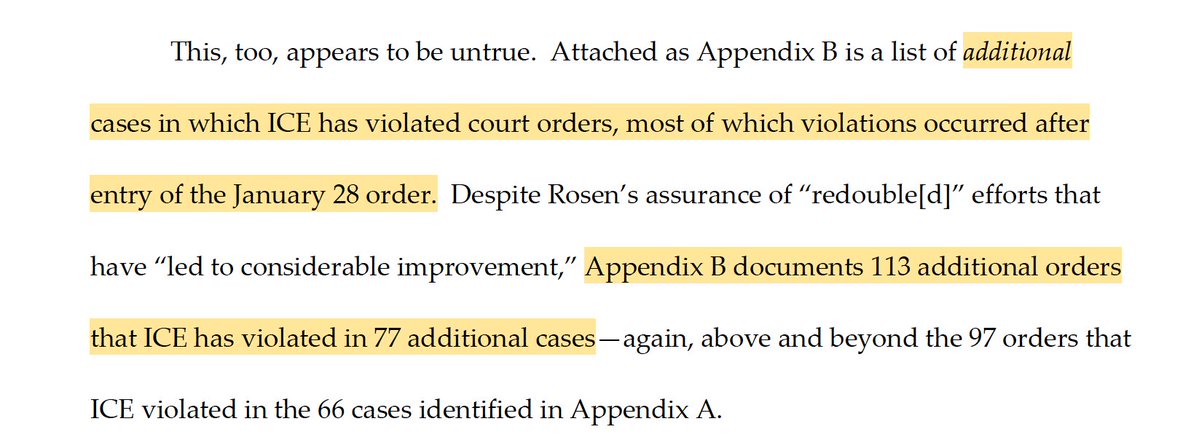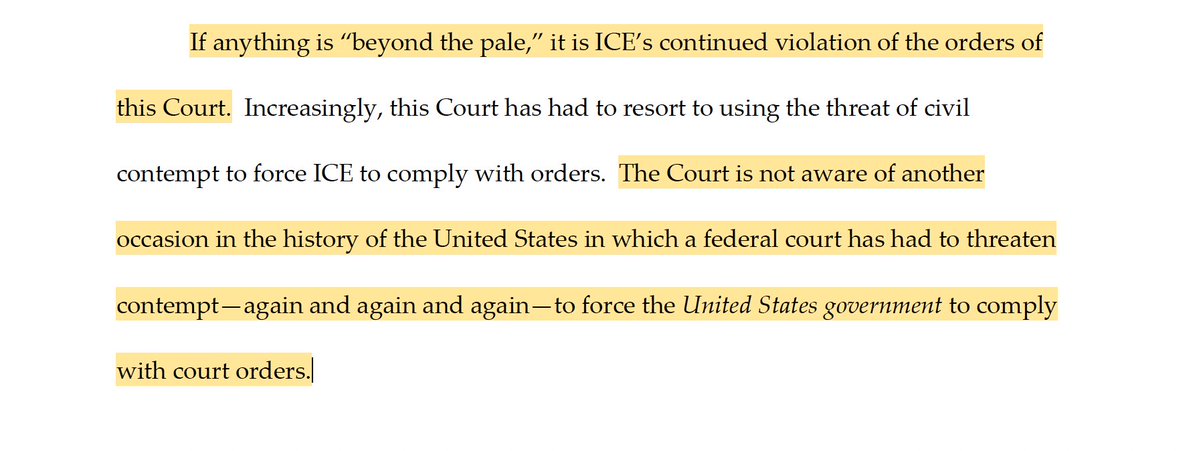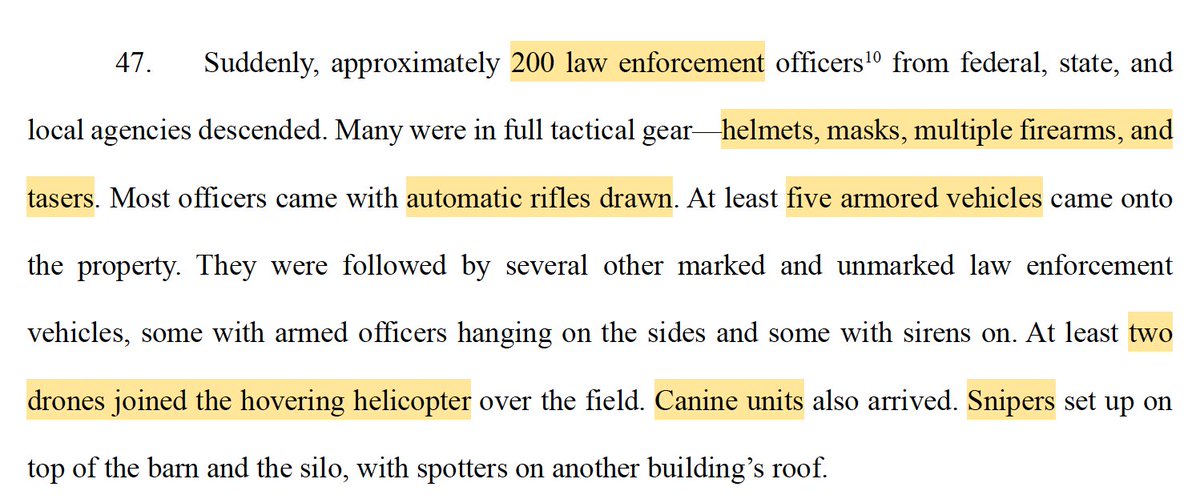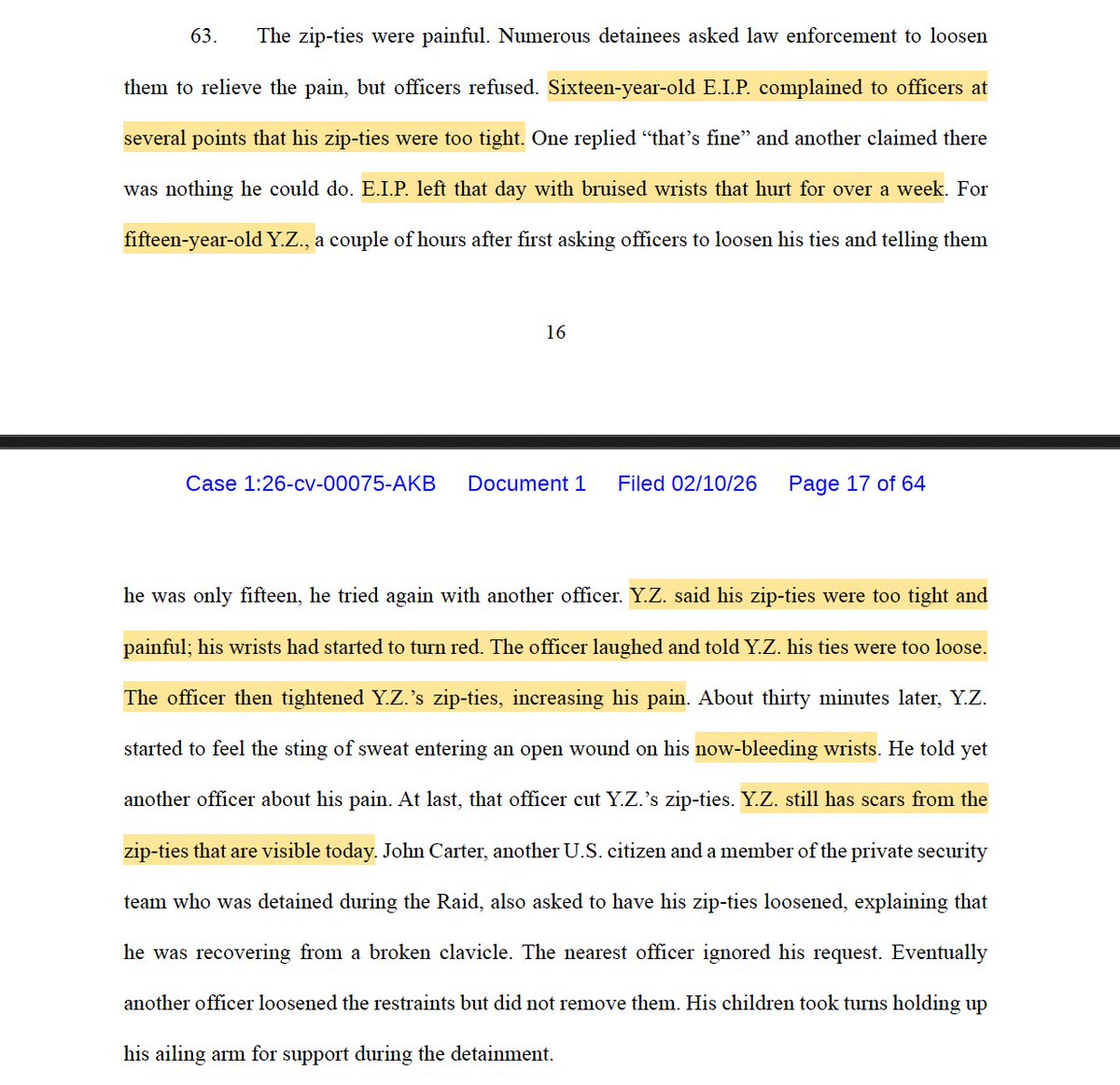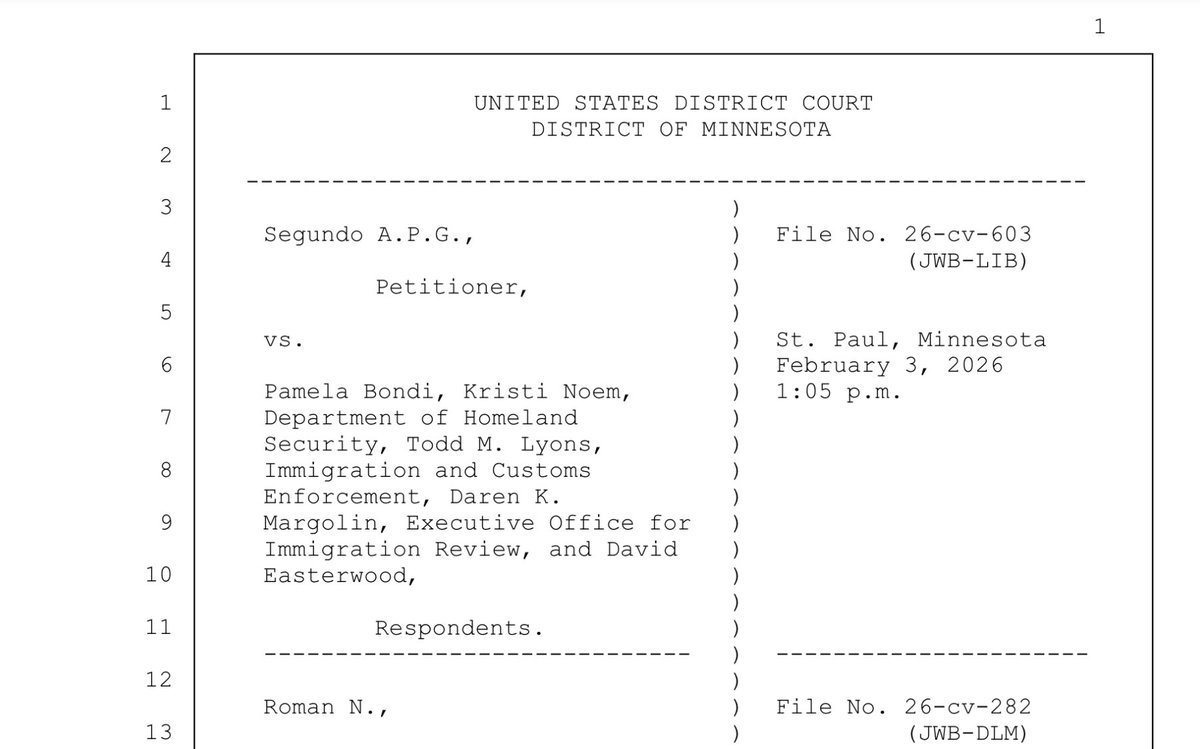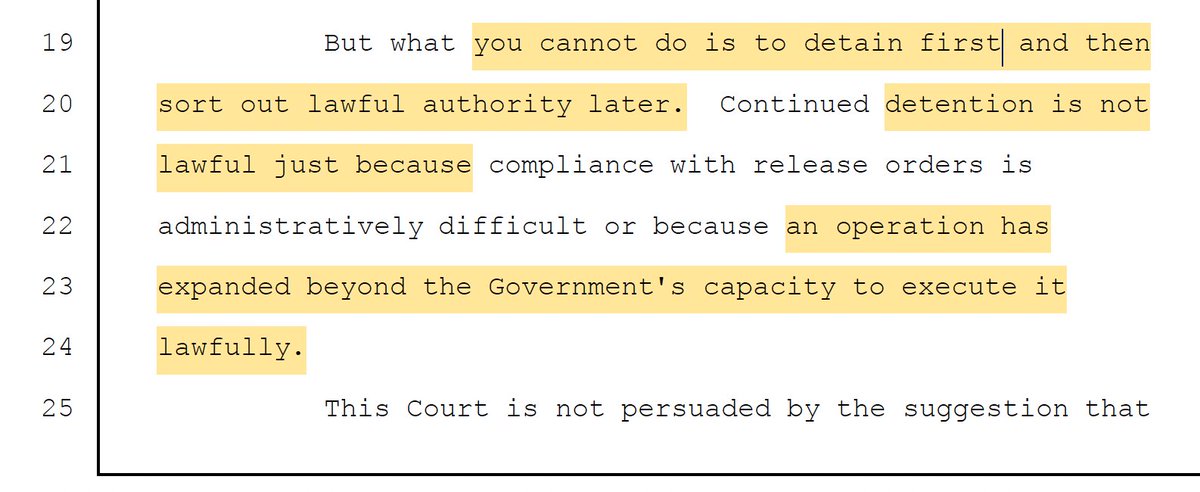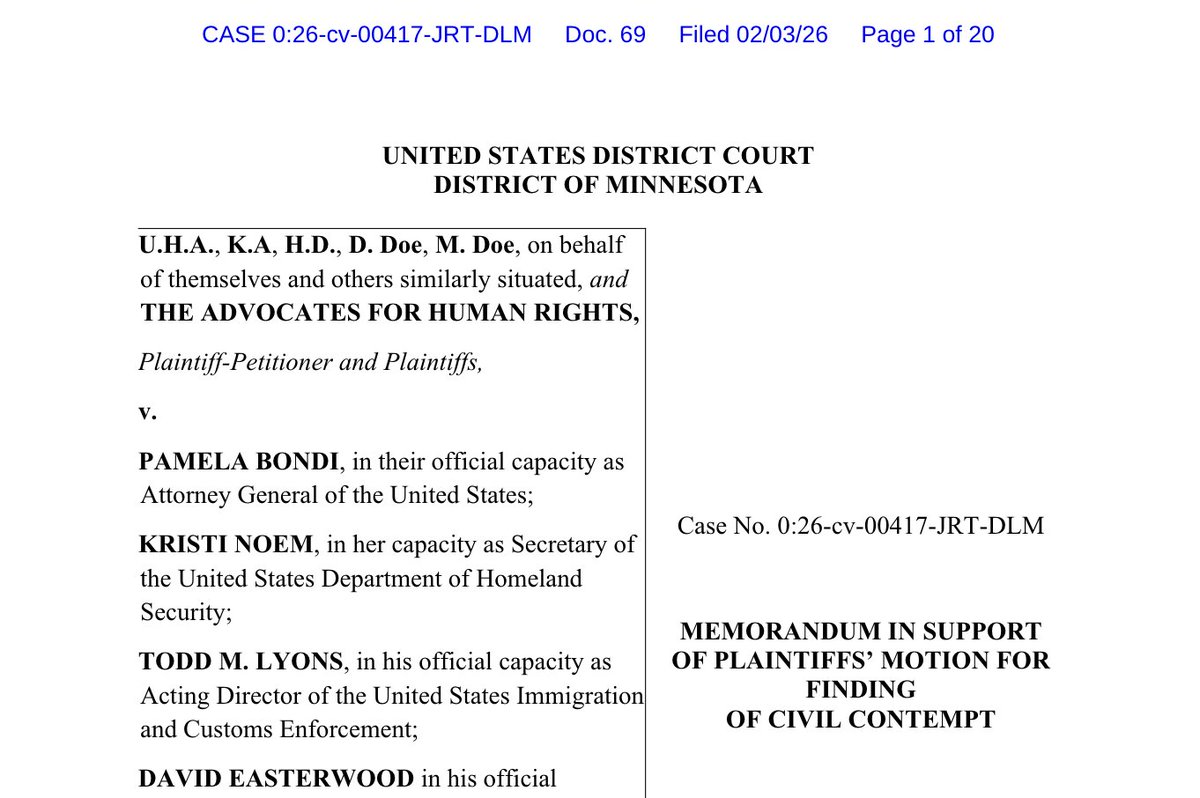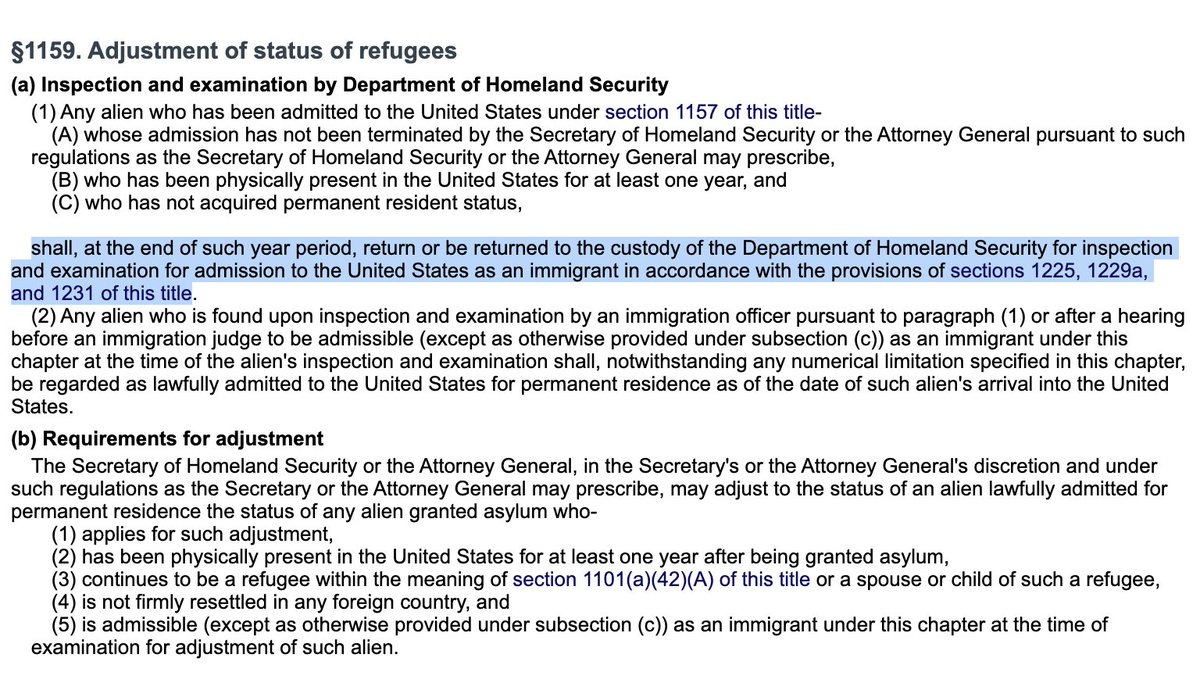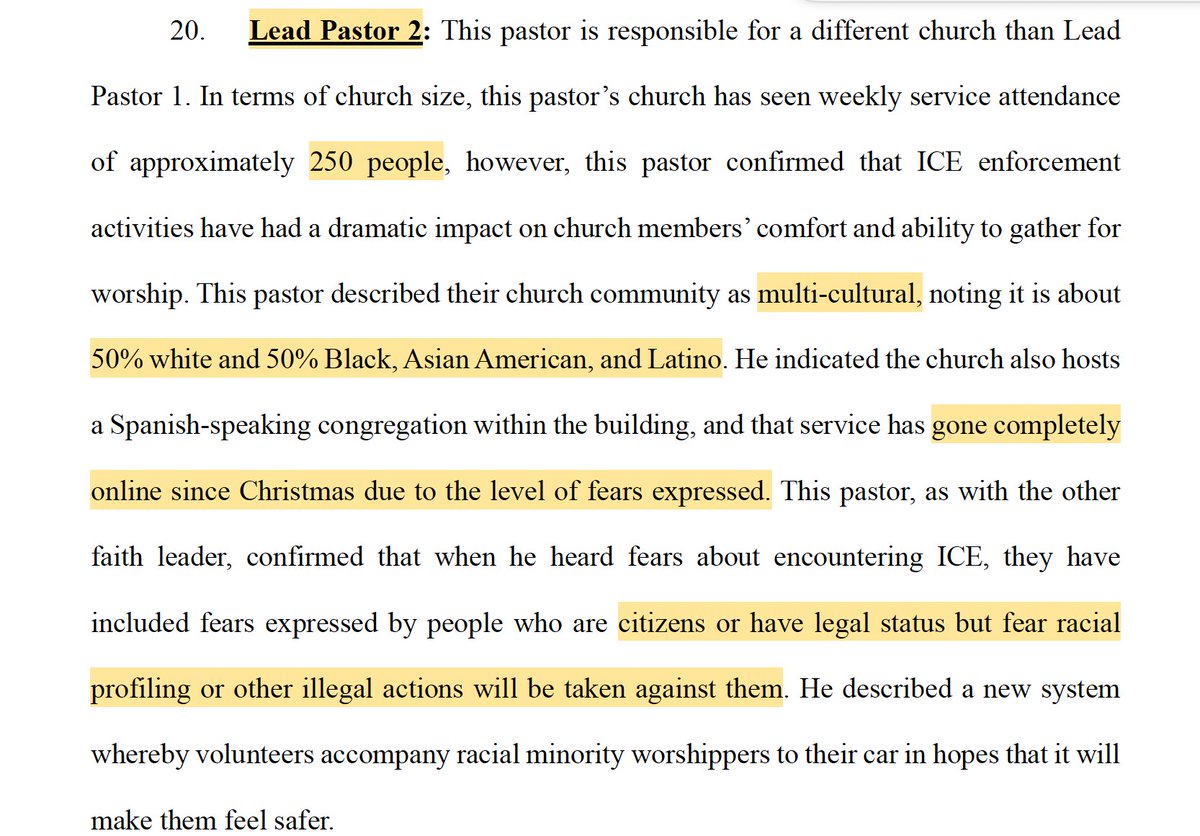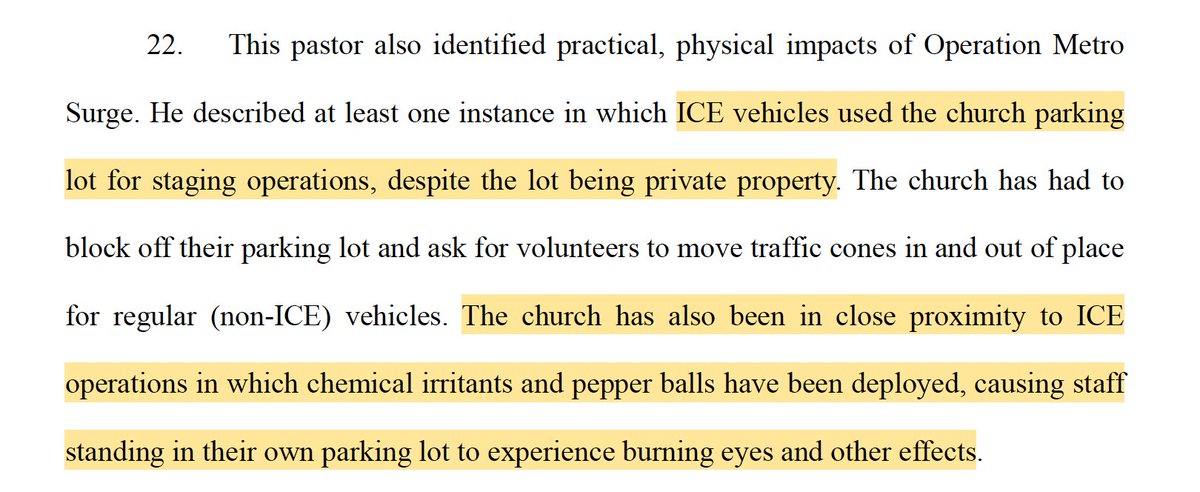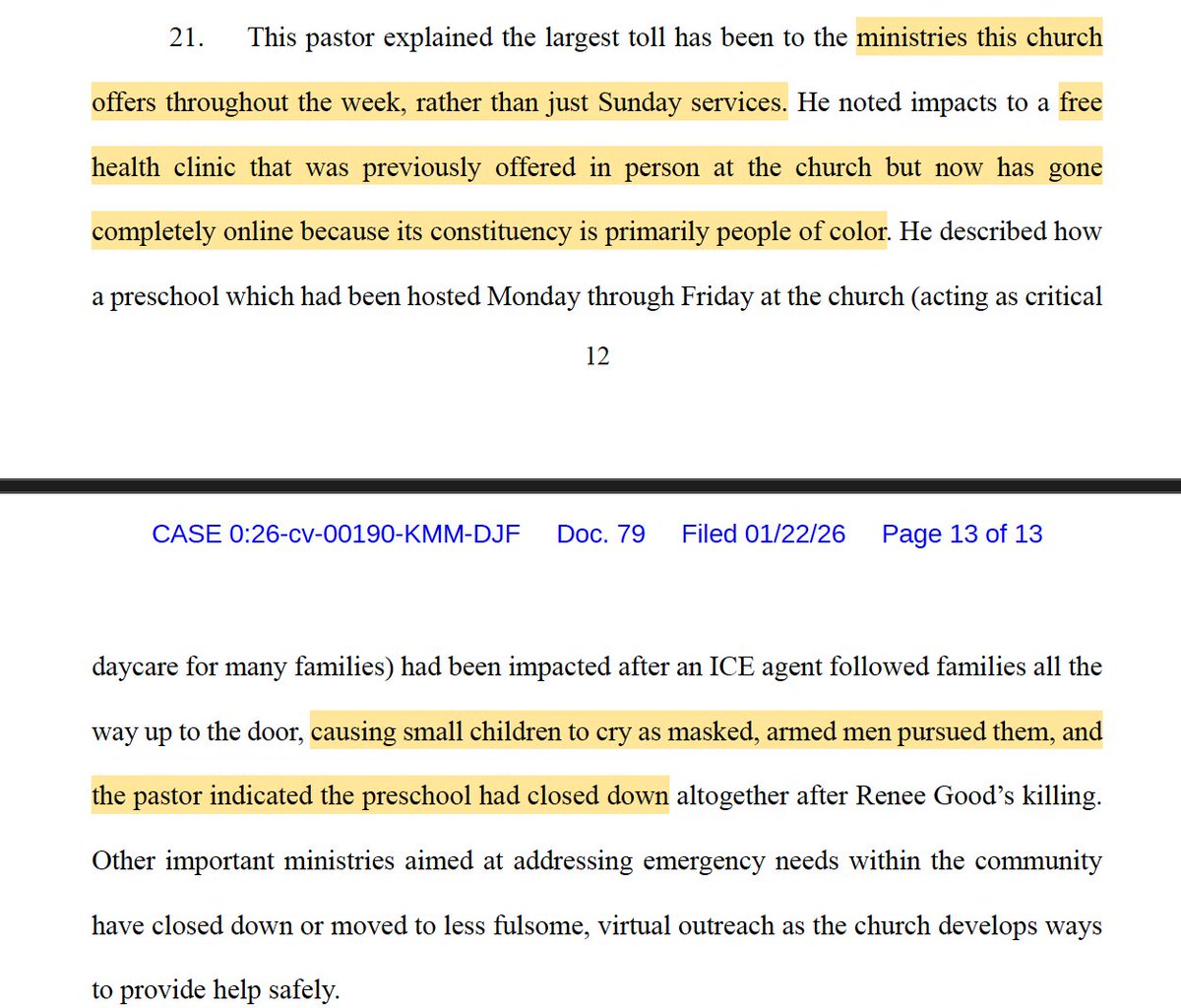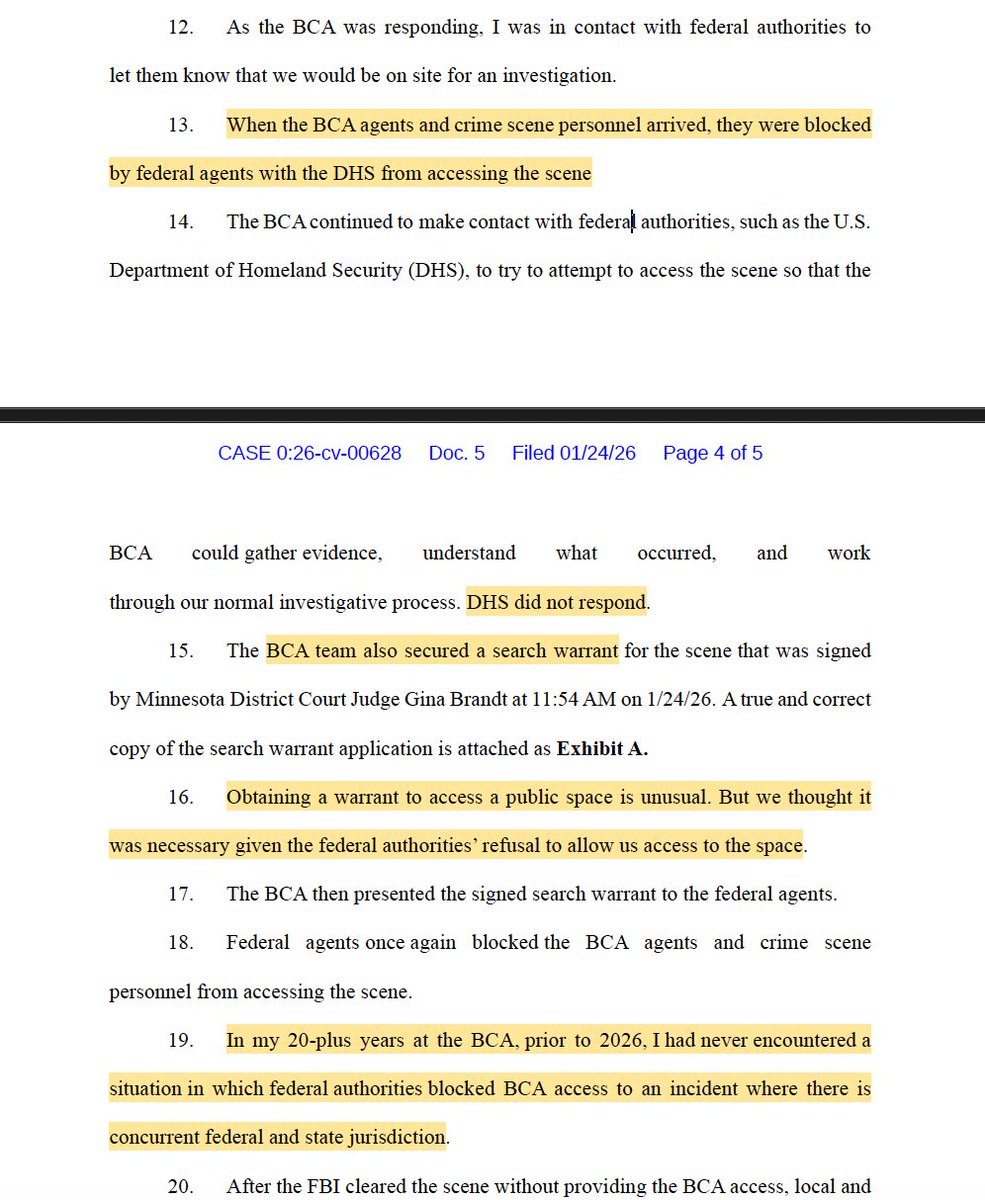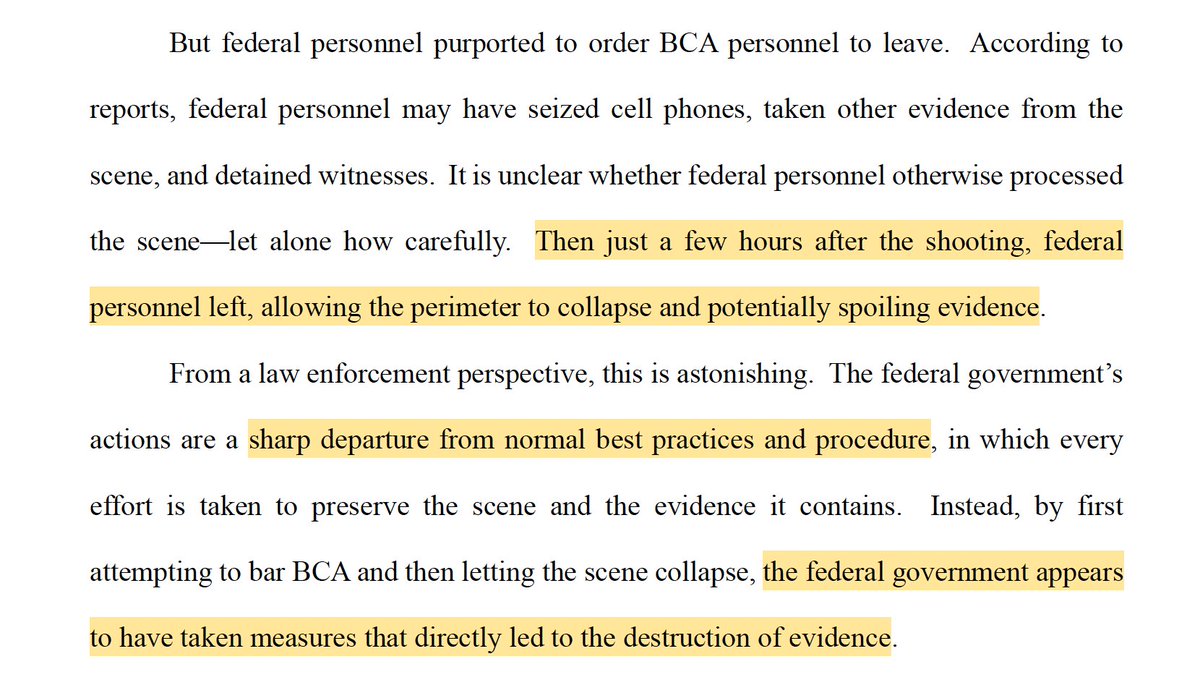Some belated thoughts on the Colorado Supreme Court’s historic ruling Tuesday that Trump is disqualified from the presidency as an insurrectionist. I’ll start with the dessert and then get to the medicine. ...
/1bit.ly/3vcCJTW
/1bit.ly/3vcCJTW
... Right after Jan. 6, when people first started talking about § 3 of the 14th Am, I assumed that when the matter finally reached SCOTUS, Justices Alito & Thomas would write separately—no matter what the rest of the court did—to say that Jan. 6 wasn’t an insurrection. ...
/2
/2
... But today, with more knowledge about both § 3 & J6, such an opinion “won’t write,” as clerks say. You'd have to ignore every relevant judicial ruling, dictionary definition, grand jury charge, & treatise and rely, instead, on @WSJ op-eds by former Trump Adm folks. ...
/3
/3
... As the SCOCO majority wrote, one can quibble about the outer contours of "insurrection," but “[a]ny definition ... would encompass a concerted & public effort ... to hinder ... the US govt from taking the actions necessary to accomplish a peaceful transfer of power.” /4 

... Claiming that Trump didn’t “engage in” the insurrection also fails. Even if a SCOTUS justice isn’t willing to disqualify, he/she won’t try to make that argument. Doing so would enshrine their disingenuousness in the US Reports forever. ...
/5
/5
The SCOCO majority wrote (with no dissents on this): “As our detailed recitation of the evidence shows, President Trump did not merely incite the insurrection. Even when the siege on the Capitol was fully underway, he continued to support it ...
/6
/6

... by repeatedly demanding that Vice President Pence refuse to perform his constitutional dutyand by calling Senators to persuade them to stop the counting of electoral votes. These actions constituted overt, voluntary, and direct participation in the insurrection.”
/7
/7

SCOCO also found (with no dissents) that Trump’s Ellipse speech overcame 1st Am bars & constituted incitement : “We agree that President Trump intended that his speech would result in the use of violence or lawless action on J6 to prevent the peaceful transfer of power. ...”
/8
/8

“ ... Despite his knowledge of the anger that he had instigated, his calls to arms, his awareness of the threats of violence that had been made leading up to January 6, and the obvious fact that many in the crowd were angry and armed, ... “
/9
/9

... “Pres. Trump told his riled-up supporters to walk down to the Capitol and fight. He then stood back and let the fighting happen, despite having the ability and authority to stop it ..., thereby confirming that this violence was what he intended.”
/10
/10

... The trial judge's escape hatch—that the presidency isn’t an “office” and the president isn’t an “officer” within the meaning of § 3—did not win a single vote at SCOCO. It will be a heavy lift at SCOTUS, where conservatives see themselves as “plain meaning” originalists.
/11
/11
... In its landmark 2008 gun-rights ruling, SCOTUS conservatives scoffed at reading into constitutional provisions “secret or technical meanings that would not have been known to ordinary citizens” at the time of drafting. The SCOCO majority quoted that language here ...
/12
/12

... in overturning the trial judge’s finding on that issue. “The drafters of Section Three were motivated by a sense of betrayal; that is, by the existence of a broken oath, not by the type of officer who broke it.” ...
/13
/13

“A construction of Section Three that would nevertheless allow a former President who broke his oath, not only to participate in the government again but to run for and hold the highest office in the land, is flatly unfaithful to the Section’s purpose.”
/14
/14

... Now for the medicine. SCOTUS faces a stark choice. On the one hand, it can disqualify—something only 4 of 7 Democratic-appointed judges had the cajones to do at SCOCO. ...
/15
/15
... A SCOTUS ruling to disqualify would likely incite violence and, doubtless, serious death threats against justices. Ideally, you'd like a 9-0 ruling to gain public acceptance, and gaining even 5 is hard to imagine. ...
/16
/16
... But what’s the escape hatch? There aren’t many credible ones left. The §-3-doesn’t-apply-to-presidents argument always had trouble passing the laugh test, and it emerged from the appellate crucible even worse for wear. ...
/17
/17
... How did the dissenters find their way out? Two cited state law issues. SCOTUS can’t do that, tho, both because it’s not supposed to decide state law & because that won’t give guidance for the other cases now rising up thru the court systems of other states.
/18
/18
... That leaves the route that dissenting Justice Samour took: that § 3 isn’t “self-executing” and only Congress can devise an enforcement mechanism for it. This is the argument that Chief Justice Salmon Chase adopted in Griffin’s Case while sitting as a lower court judge ...
/19
/19
... in Virginia in 1869. Since then, some of the nation’s best constitutional historians & scholars (including originalists) have picked gaping holes in Chase’s nonbinding reasoning. E.g., this link:
/20bit.ly/3QxDqzA
/20bit.ly/3QxDqzA
... Chase’s ruling was crudely result-oriented and anything but “originalist.” Still, justices looking for a way out may grab that one. ...
/21
/21
Although @gtconway3d has written that the dissents in the Colorado case reinforced in his mind the strength of the majority opinion, I had a slightly different takeaway. ...
/22bit.ly/3Nxl0fZ
/22bit.ly/3Nxl0fZ
@gtconway3d ... I agree that none of the 3 dissenters bowled anyone over with a bullet-proof legal argument. But the emotional cri du coeurs from two of them may have a impact on some SCOTUS justices—including the liberals. ...
/23
/23
@gtconway3d ... Chief Justice Boatright bemoaned the “breakneck pace” of the CO election-challenge procedures, which he said just weren’t “commensurate” with the “extraordinary” issues being decided. “Just because a hearing was held ... doesn’t mean ... due process was observed.”
/24
/24

@gtconway3d ... Justice Carlos Samour was the most impassioned. “I have been involved in the justice system for 33 years now,” he wrote, “& what took place here doesn’t resemble anything I’ve seen in a courtroom.” ...
/25
/25

@gtconway3d ... Samour said the “the Section Three challenge brought by the Electors was a square constitutional peg that could not be jammed into our Election Code’s round hole,” and that “what transpired in this litigation fell woefully short of what due process demands.”. ...
/26
/26

@gtconway3d ... Personally, I thought Judge Sarah Wallace presided over a very fair 5-day bench trial. (And ruled for Trump!) After all, this isn’t an Agatha Christie whodunit. Thanks to the House Select Committee, everyone subject to compulsory process has already been deposed. ...
/27
/27
@gtconway3d ... Furthermore, Trump chose not to testify. That can and should be used against him at a civil trial (though neither the trial judge nor SCOCO justices appear to have held that against him). ...
/28
/28
@gtconway3d Still, I can’t see SCOTUS voting to disqualify. While there isn’t a good “plain meaning” originalist basis for *not*disqualifying, five justices can turn to Griffin’s Case and say “I’m just following precedent.” That's their least implausible escape hatch.
/29-end
/29-end
• • •
Missing some Tweet in this thread? You can try to
force a refresh



